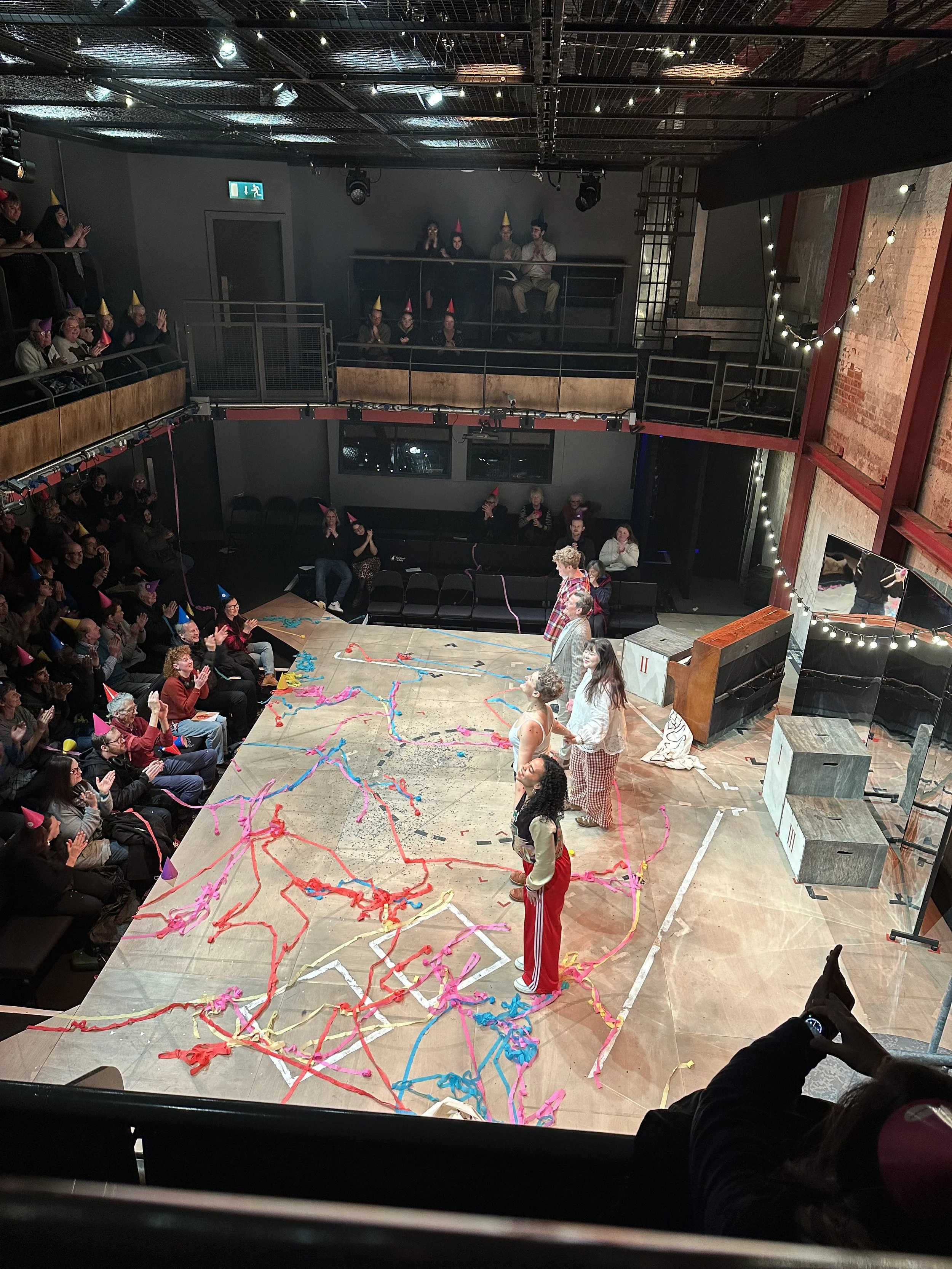Cyrano
I had not heard of Cyrano before being invited by a friend to see this show, and I am beyond glad that I was witness to this retelling. Interestingly, this adaptation opens to describe some key moments yet to come but I briefly mistook them for discussing Romeo and Juliet (but we definitely don't need another production of that right now).
Cyrano was a real man, a 17th French novelist with a reportedly large nose, of whom Edmond Rostand wrote a play about in the late 19th century. It follows the story of Cyrano's wooing of Roxanne, his distant cousin, but with the catch that he is pretending to be another man, Christian, one who is too dumb or tongue-tied to intellectually engage with Roxanne but otherwise has the confidence to engage physically. However, this is an adaptation, that follows a gender-swapped Cyrano pursuing Roxanne (who is no longer her cousin), and diverges at the conclusion with some critical awareness of itself.
What I liked
The queer element to the story made it far more compelling. Though Cyrano is of course insecure of her nose, there is also the element of queer romance that sees her contain her emotions for the possibility of losing a friend if the feelings are not reciprocated, or worse, if her feelings are interpreted as a perversion or manipulation, an interpretation stemmed in homophobia. This added layer made her desire to please despite the pain it brings her all the more compelling, but also the betrayal from Roxanne's point of view all the more legitimate.
Virginia Gay's performance was stellar, and especially special as the last time I saw her perform was in Sydney in a production of Calamity Jane. And on top of that, I was still in the closet. So it felt very full circle to see her perform once more, once again in a role exploring the queer woman.
For a small theatre, the show did a wonderful job laying out the story. One moment of staging was especially memorable: The Balcony Scene. Here Cyrano and Christian (or in this production, Yan) are below Roxanne on her balcony, as Cyrano speaks for him to woo her. The matching of outfits, the switching back and forth from who could possibility be seen, the staging that connected them to Roxanne was captivating and filled with immense tension.
What wasn't my favourite
The choice to change endings felt very appropriate given the meta awareness of the play throughout, but the choice to try to get Roxanne to forgive Cyrano with a song felt perhaps a bit cheap. I love a song, but the key factor in musicals is that songs are sung when you're too emotional to speak. This wasn't the case, and instead rang a few bells of familiarity with the trope of men playing guitar at women for their affection. I can see ways that the song is a good tool for Cyrano in this moment, a crossroads for her intellect and truly feeling her emotions, but I think it was used a bit like shorthand for a grand gesture without being very grand, but I may just be getting a bit sick of plays having a single song without a very strong reason.
Overall
This was definitely my favourite play of the year. It was tense, and light hearted, it was queer without killing her off at the end, but most notably… it was an Australian. Not really the main reason I loved it, but it sure helps.
